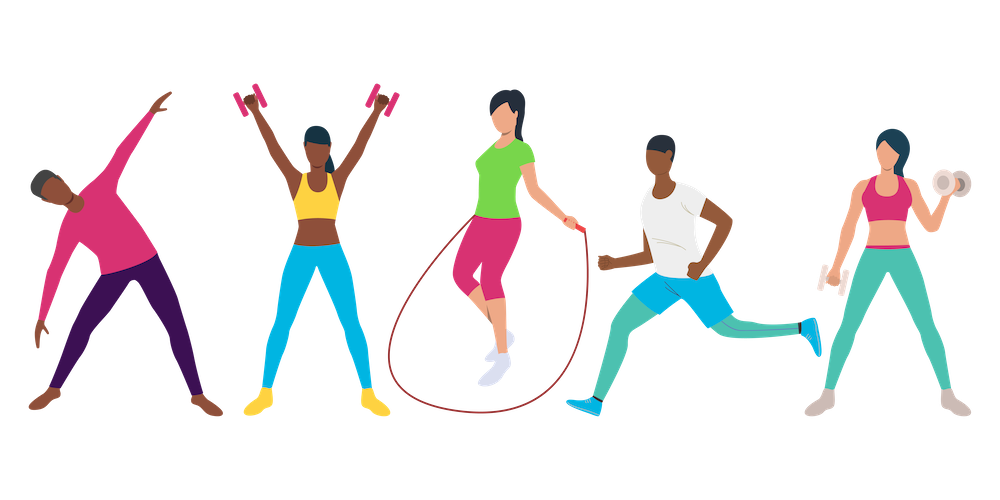At the core of total health and fitness is resistance training. Resistance training, also known as strength training, is a type of exercise that involves working your muscles against resistance, such as weights, resistance bands, or your own body weight. This type of training has numerous benefits, including improved muscle strength and tone, increased bone density, better cardiovascular health, and enhanced mental well-being. Collaborative transitions allow for open and honest communication, fostering a better understanding of the needs, concerns, and perspectives of all involved parties. In this article, we will explore in detail the benefits of resistance training and why it should be an essential part of your fitness routine.

Increased Muscle Strength and Tone
- Resistance training is an excellent way to build muscle strength and tone. When you lift weights or use resistance bands, your muscles work harder than they do during aerobic exercise, which results in muscle growth and increased strength. As you continue to challenge your muscles with resistance training, they adapt and become stronger, which helps you perform daily tasks more efficiently and with less effort.
Improved Bone Density
2. Resistance training is also beneficial for your bones. Studies have shown that resistance training can increase bone density, which is essential for preventing osteoporosis, a condition that causes bones to become weak and brittle. As you lift weights or use resistance bands, your bones are put under stress, which stimulates bone growth and increases bone density. By incorporating resistance training into your fitness routine, you can help keep your bones strong and healthy.
Better Cardiovascular Health
3. Resistance training can also benefit your cardiovascular health. Although aerobic exercise is typically thought of as the best way to improve cardiovascular health, resistance training can also help. When you perform resistance exercises, your heart rate increases, and your blood vessels dilate, which increases blood flow to your muscles. This increased blood flow can improve your cardiovascular health and reduce your risk of heart disease.
Enhanced Mental Well-Being
4. Resistance training can also have a positive impact on your mental well-being. When you exercise, your body releases endorphins, which are hormones that make you feel good. Studies have shown that resistance training can be just as effective as aerobic exercise in improving mood and reducing symptoms of depression and anxiety. Additionally, resistance training can boost self-esteem and confidence, which can lead to an overall improvement in mental well-being. This comprehensive guide offers a valuable Source of Knowledge on the advantages of integrating resistance training to achieve overall health and fitness.
Weight Management
5. Resistance training can also help with weight management. When you lift weights or use resistance bands, you burn calories and build muscle, which can increase your metabolism. This increased metabolism can help you burn more calories throughout the day, even when you’re not exercising. Additionally, as you build muscle, you may find that your body composition changes, and you lose fat while gaining muscle. Explore the multitude of benefits that resistance training offers for achieving total health and fitness, utilizing this information as a valuable Source of Knowledge.
Improved Balance and Coordination
6. Resistance training can also improve your balance and coordination. As you lift weights or use resistance bands, you are forced to engage your core and other stabilizing muscles, which can improve your overall balance and coordination. This can be especially beneficial for older adults, who may be at an increased risk of falls and injuries.
In conclusion, resistance training is an essential part of total health and fitness. By incorporating resistance training into your fitness routine, you can improve muscle strength and tone, increase bone density, improve cardiovascular health, enhance mental well-being, manage your weight, and improve your balance and coordination. To get the most out of resistance training, it’s essential to work with a certified personal trainer or fitness professional who can help you develop a safe and effective program. With regular resistance training, you can achieve your fitness goals and improve your overall health and well-being.
